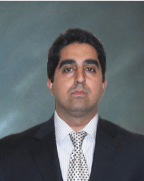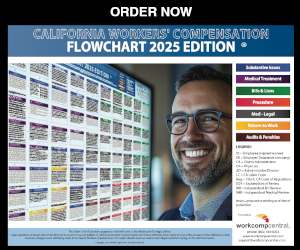Industry Insights
May 6, 2016
Chahal: Utilization Review and Timeliness
- National
- - 0 shares
SB 863 attempted to improve the delivery of medical benefits to applicants by mandating the use of evidence-based medicine via utilization review (UR) and independent medical review (IMR).

Harry Chahal
Given the law of unintended consequences, this has brought us to the wonderful world of expedited hearings and Dubon challenges that we now routinely face. Fortunately, recent panel decisions have provided guidance, and clarified the procedural and jurisdictional issues related to UR, IMR and objections to validity of UR denials.
In Dubon v. World Restoration Inc. (2014), the Workers’ Compensation Appeals Board clarified the relationship between the WCAB and the UR, IMR processes. It held in this en banc decision that:
- A UR decision is invalid and not subject to IMR only if it is untimely.
- Legal issues regarding the timeliness of a UR decision must be resolved by the WCAB, not IMR.
- All other disputes regarding a UR decision must be resolved by IMR.
- If a UR decision is untimely, the determination of medical necessity may be made by the WCAB based on substantial medical evidence consistent with Labor Code section 4604.5.
Pursuant to Dubon, when faced with a DOR for expedited hearing, the adjuster and defense attorney can first limit their analysis to whether the UR decision was timely issued. Whether the requested treatment is medically reasonably necessary based upon substantial evidence is decided only after the untimeliness of UR has been established.
At that point, the burden is on the applicant to show the reasonable necessity of the disputed requested treatment. If the UR decision is shown to be timely, the parties are limited to IMR to decide the treatment dispute.
In Bodam v. San Bernardino County Department of Social Services (2014), the court, in a significant panel decision, discussed what deficiencies cause UR decisions to be untimely. While significant panel decisions are not binding precedent, they are citable and adopted as far as their reasoning is determined persuasive.
The court held:
- A defendant is obligated to comply with all time requirements in conducting UR, including the timeframes for communicating the UR decision.
- A UR decision that is timely completed but is not timely communicated is untimely.
- When a UR decision is untimely and, therefore, invalid, the necessity of the medical treatment at issue may be determined by the WCAB based upon substantial medical evidence.
Labor Code section 4610 lists the time limits for issuance and communication of a UR decision.
For prospective UR decisions, “they must be made not to exceed five working days from the receipt of the information reasonably necessary to make the determination, but in no event more than 14 days from the date of the medical treatment recommendation by the physician."
UR decision must also “be communicated to the requesting physician within 24 hours of the decision. Decisions resulting in modification, delay or denial of all or part of the requested health care service shall be communicated to physicians initially by telephone or facsimile, and to the physician and employee in writing within 24 hours for concurrent review, or within two business days of the decision for prospective review, as prescribed by the administrative director.”
Obtaining documentation of communication of UR decisions is now a crucial step in preparation for expedited hearings. Proofs of service and fax confirmations of the communication are invaluable. Please remember, however, that even if the UR timelines are not met, the burden is on the applicant to establish that the necessity of the disputed course of treatment is supported by substantial medical evidence.
UR is a wonderful defense weapon to protect against misuse and overuse of medications, therapies, procedures, etc. However, these defenses disappear if the UR is untimely. Want to make sure that only reasonable and necessary treatment is provided? Keep a close eye on your calendar.
Harry S. Chahal is an associate attorney in Bradford & Barthel’s Los Angeles office. His blog entry is republished here with permission.
Advertisements
Columns
- Gelman: Asbestos Ban Is a Win for Workers 07/14/25
- Snyder: Mediation Confidentiality 07/11/25
- Snyder: Settle and Sue: Don't Let It Happen to You 07/09/25
- Kamin: State Senate Committee to Consider SIBTF Bill 07/07/25
- Anders: Self vs. Professional MSA Administration: Which Is Right for the Injured Worker? 06/30/25
- Geaney: Court Affirms Finding of Police Officer's Joint Employment 06/27/25
- Fricker: A New Era for Comp Subrogation 06/25/25
- Kamin: AI for HR Equals Bad Injury Reporting 06/20/25
- Montgomery: Will DWC Ignore New Law? 06/18/25
- Kamin: 4th DCA Clarifies DOI From Date of Knowledge 06/16/25
- Wade: Are the Old Ways Gone? 06/13/25
- Snyder: Trust Your Intuition 06/12/25
- Montgomery: DIR Director Reportedly Resigning 06/11/25
- Gelman: Supreme Court to Review COVID Compensability 06/06/25
- Paduda: WCRI's New Studies 06/05/25
- Moore: 187 Pages of WCRI State Stats 06/02/25
- Paduda: The Gutting of NIOSH 05/30/25
- CAAA: Left in the Smoke 05/28/25
- Gelman: Intentional Wrong? 05/27/25
- Wroten: State's Workers' Comp Crisis a Stark Contrast to National Stability 05/23/25
Now Trending
- Workers' Compensation News
-
Calif. LAO: Second
Injury Fund 'No Longer Aligned'
With Legislative…
Posted on Jul 14, 2025
-
Calif. City Sues
Ex-Cop Accused of Comp…
Posted on Jul 11, 2025Michael Hemming says: “Back when I handled criminal defense I represented a few clients accused…”
-
Calif.
Commissioner Approves 8.7% Rate
Increase, First Since…
Posted on Jul 15, 2025
-
Calif. CWCI: Data
Doesn't Support Presumption for
Hospital…
Posted on Jul 9, 2025
-
Calif. Committees
Pass Presumption, SIBTF…
Posted on Jul 11, 2025
-
Calif. WCIRB Posts
Agenda for 2025…
Posted on Jul 11, 2025
-
N.M. High Court
Invalidates Cap on Attorney Fees in…
Posted on Jul 8, 2025
-
Mont. Fire
Marshal's Claim Survives State
Fund's Bid for Summary…
Posted on Jul 10, 2025
-
N.Y. Trial Court
Has Jurisdiction to Enforce
Judgment Against State Insurance…
Posted on Jul 9, 2025
-
La. Split Court
Says Employer Entitled to Defense,
Indemnification in Civil Suit…
Posted on Jul 8, 2025
Jobs
Upcoming Events
Sep 2-4, 2025
San Diego Elevate Workers' Com
We are thrilled to announce that Early Bird registration is OPEN for ELEVATE« 2025! This year's …
Social Media Links
c/o Business Insurance Holdings, Inc.
Greenwich, CT 06836




One Comment
Log in to post a comment
Dr. Robert Weinmann Nov 3, 2016 a 7:58 am PDT
For more on this timely subject and on-target op-ed, see columns entitled "Utilization Review: Hypocrisy in Velvet Gloves," workcompcentral, 2014-03-26; "Utilization Review Hypocrisy," TOTALCAPITOL.COM, 04/02/14; and SAN FRANCISCO CHRONICLE, op-ed, 8/29/08, "How to practice medicine without a license." -- robert L. weinmann, MD, Editor, The Weinmann Report, www.politicsofhealthcare.com